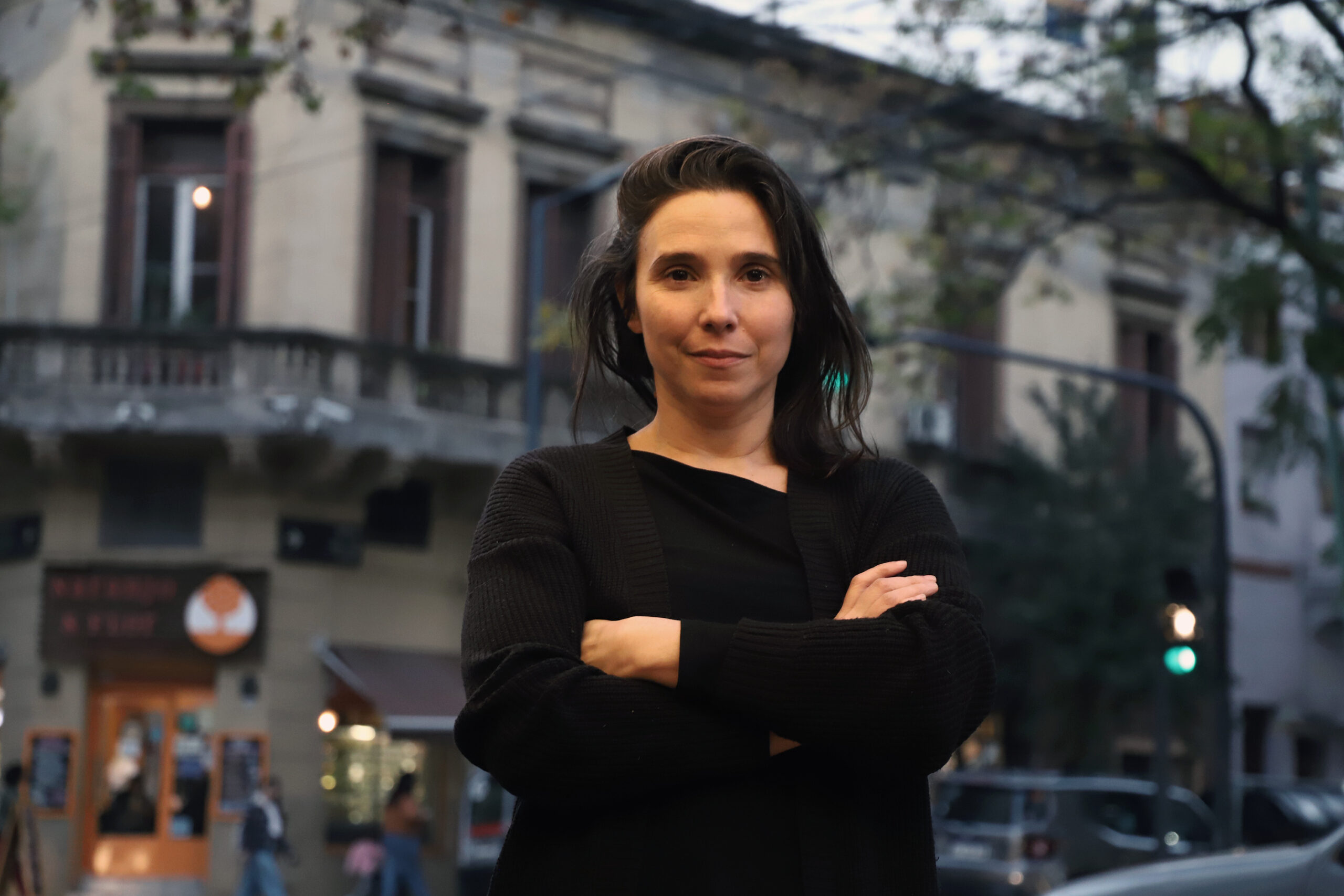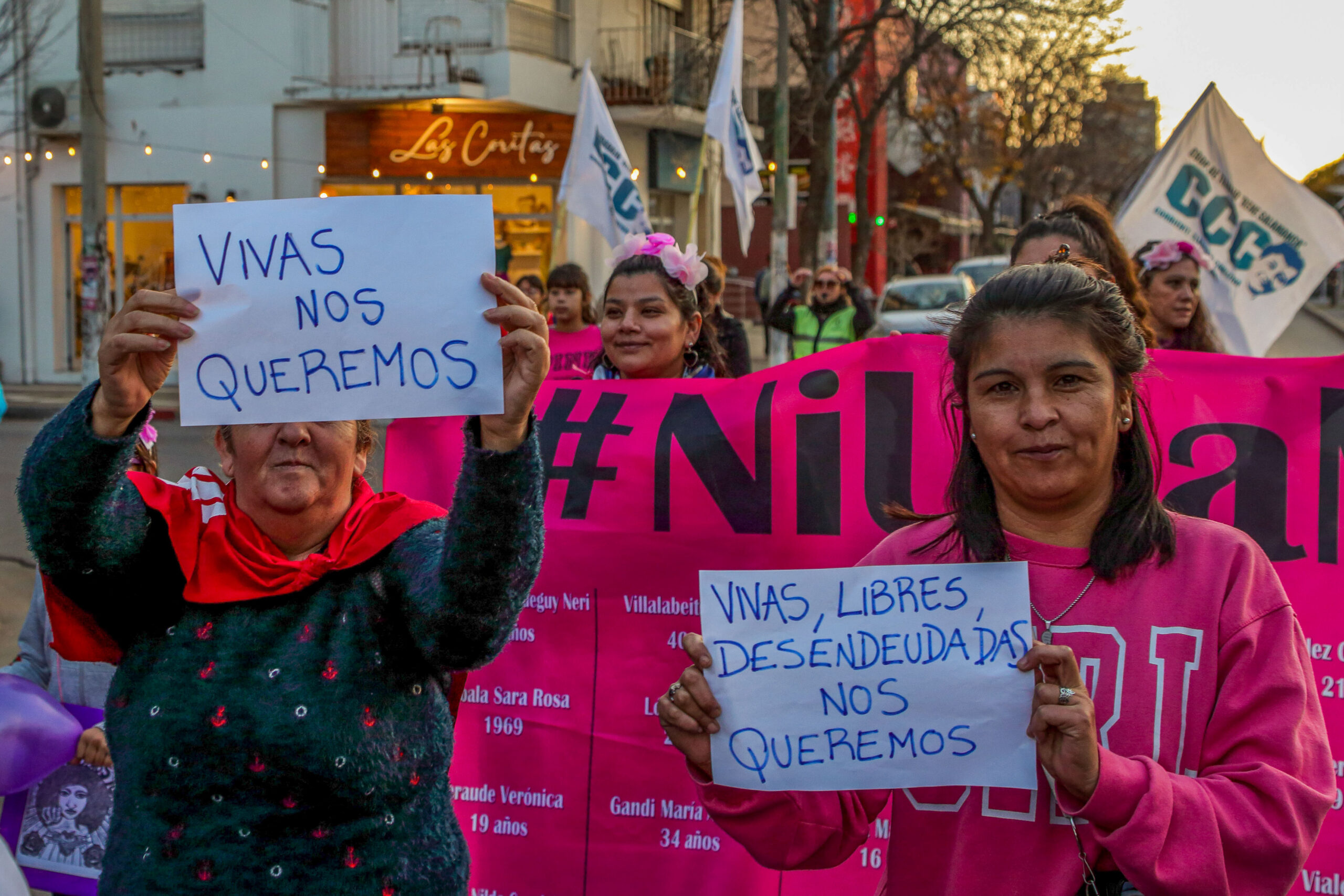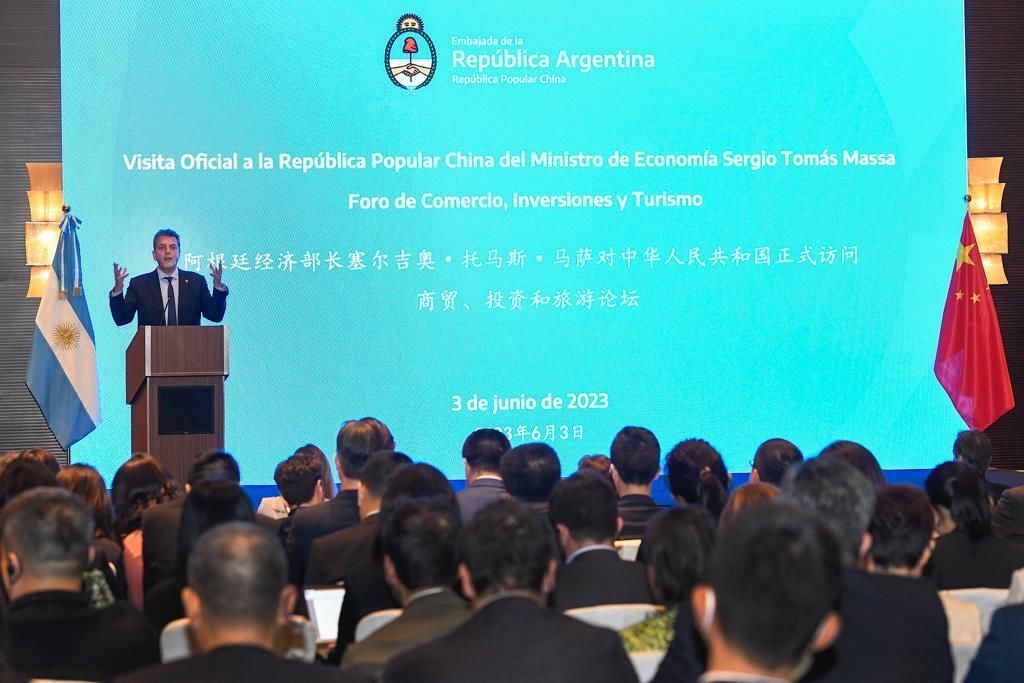EU Commission says Mercosur trade deal a priority
The European Commission has said it is a priority to conclude a long-delayed trade deal with South America’s Mercosur bloc, as the EU seeks new allies to reduce its dependence on China and the United States, according to a document seen by Reuters. An EU-Mercosur trade pact was agreed in principle in 2019 but is still waiting to be ratified in the parliaments of those countries involved. Latin America and Europe should work on reducing “excessive dependency” on third countries, it adds. Many of the deals would build on an EU programme to invest in green and digital transition projects in Latin America which is due to be approved at a July 17-18 summit between the Community of Latin America and Caribbean States (CELAC) and the EU, the first since 2015. Negotiations are most advanced with Chile and Argentina, and a deal could be announced as early as July, according to the European diplomatic sources.
Source:Bueno Aires Herald
June 05, 2023 20:41 UTC
Venezuela's Maduro visits Saudi Arabia
Venezuelan President Nicolas Maduro arrived in Saudi Arabia on Monday, as the kingdom continues to expand its diplomatic outreach beyond traditional Western alliances. Maduro was received at the airport of the Saudi Red Sea city of Jeddah by Deputy Governor of Mecca region Prince Badr bin Sultan and other officials, Saudi state news agency SPA said. Venezuela’s Maduro is the latest U.S. foe to visit Saudi Arabia as the kingdom rebuilds alliances without the blessing of the United States, its long-time ally. The fellow OPEC nation had sought coordination in the past with Saudi Arabia on falling oil prices and U.S. sanctions. Maduro’s visit comes a day before U.S. Secretary of State Antony Blinken lands in Saudi Arabia for talks with the Saudi leadership.
Source:Bueno Aires Herald
June 05, 2023 18:13 UTC
Is Yellowjackets Season 2 coming in June 2023?
AdvertisementYellowjackets Season 2 left fans with many more questions than answers, as the Showtime series built on the decades-long mystery surrounding the team’s time in the woods. Here’s everything you need to know about Yellowjackets Season 2Yellowjackets Season 2 Potential Release DateAs of now, Yellowjackets Season 3 has no confirmed release date. According to previous release schedules, the show was renewed for a 2nd season back in December 2021 and it was then released in March 2023. Since Season 3 was ordered in December 2022, we might expect a March 2024 release. Yellowjackets Season 2 Expected Cast
Source:The Bubble
June 04, 2023 23:26 UTC
Is Loki Season 2 Releasing in June 2023?
AdvertisementWith Loki season 2 ready to debut as part of the MCU’s Phase 5, new updates about the Disney+ show’s forthcoming 2nd season have begun to surface. Loki season 1 showed him discovering the world of the Time Variance Authority (TVA) and meeting Jonathan Majors’ He Who Remains. Loki season 2 is expected to bring more time travel drama to the MCU after season 1 ended on a cliffhanger. Loki Season 2 Release DateAlthough Marvel Studios had previously promoted that Loki’s 2nd season will premiere on Disney Plus in the summer of 2023, the studio has recently changed the show’s release date to the fall. The release date of Loki season 2 has been set as October 6, 2023, instead of the summer as some fans had hoped.
Source:The Bubble
June 04, 2023 22:28 UTC
Laura Paredes: Shining everywhere between stage and screen
The actress is Laura Paredes, and that single appearance in the film earned her a Silver Condor award (given by the Argentine Film Journalists Association) for Best Supporting Actress. I would turn around and see everyone in the set was crying,” recalls Paredes on the phone with the Buenos Aires Herald. It’s still playing at the Malba Museum film theater, where its audience success has kept it on for months since premiering in February. The film took several years to make, with many rewrites across the pandemic and both Citarella and Paredes’ pregnancies. I didn’t want to stage a play by Lorca, I wanted to do a play about Lorca,” she says.
Source:Bueno Aires Herald
June 04, 2023 18:48 UTC
Ni Una Menos, 2023: The demands across the country
Feminists in Buenos Aires City gathered in front of Congress as they have done every year since 2015 when the first Ni una menos march was held. Unlike its direct English translation, travesti in Argentina is a gender identity with deep political roots that is worn with pride. María José Poncino of Movimiento Evita and Ni Una Menos Rosario, told Télam that they were “back on the streets because inequality persists in society and this situation has worsened with a fierce debt from 2017 and with the pandemic”. “This year we want to reinforce the importance of eradicating political violence against women and diversity,” said provincial gender leader Amira Maslup in official statements. With banners reading “Ni Una Menos, the state is responsible”, the event was attended by members of the Women’s Movement of Bahía Blanca, Pan y Rosas, among others, along with relatives of victims of femicide and mothers’ organizations.
Source:Bueno Aires Herald
June 04, 2023 16:36 UTC
In China, Massa secures US$3 billion for infrastructure works
Today, on the last day of his week-long trip to China, Massa spoke about the prospects for the Argentine economy and the three-year currency swap extension in front of executives of the country’s 40 largest companies. “[The swap extension] allows companies from the People’s Republic of China an opportunity to develop an investment flow [to Argentina] based on the yuan,” Massa said. The projectsThe Bank of China (BOC), the China Development Bank (CDB), the China CITIC Bank, the Export–Import Bank of China (Eximbank), and the Industrial and Commercial Bank of China (ICBC) are among the entities that will finance infrastructure works in Argentina. The Roca Railroad project US$ 236 million investment expects to add 200 cars, which will enable the line to be re-equipped to guarantee comfort and passenger improvements. The lithium exploitation project and solar park in Cauchari IV and V, Jujuy, foresees an US$ 250 million investment to be financed by Eximbank.
Source:Bueno Aires Herald
June 04, 2023 07:07 UTC
Fourth seed Elena Rybakina forced to withdraw from French Open due to illness
AdvertisementDue to an upper respiratory illness, world number 4 Elena Rybakina pulled out from her third-round match in the women’s singles draw of the 2023 French Open against Spain’s Sara Sorribes Tormo on Saturday. The statement came only moments before the reigning Wimbledon champion took the court on Saturday. Prior to travelling to London to defend her Wimbledon championship, Rybakina will participate in Berlin and Eastbourne during the grasscourt season. With Rybakina out, Sorribes Tormo advances to the round of 16 through walkover for the first time in her Grand Slam career. She will take on the person who wins the match between Beatriz Haddad Maia and Ekaterina Alexandrova.
Source:The Bubble
June 04, 2023 00:04 UTC
China confirms it will back Argentina’s admission to the BRICS
The chairman of the National People’s Congress of China, Zhao Leji, said his country would support Argentina’s entry into the BRICS —made up of Brazil, Russia, India, China and South Africa—, which will enable the country to receive financial aid, said sources within the Argentine delegation to China. Leji’s statement came in a meeting in Beijing with national Frente de Todos (FdT) deputy and head of the Buenos Aires PJ, Máximo Kirchner, and the head of the Chamber of Deputies, Cecilia Moreau. The president of the BRICS’ New Development Bank (NDB) Dilma Rousseff met recently in China with Economy Minister Sergio Massa, and informed him that the bank’s board of directors formally enabled a vote on Argentina’s admission into the institution for the next meeting. The decision is relevant for Argentina, mostly because joining the bank as a member opens up the possibility of obtaining financial aid. Also present were Camilo Vaca Narvaja, head of the Office of the Presidency and officials from the Argentine embassy in the country.
Source:Bueno Aires Herald
June 03, 2023 20:32 UTC
U-20 Football World Cup: What to expect in the quarterfinals
The FIFA U-20 Football World Cup round of 16 matches ended up following a sports natural selection route if you will, where the better team on the field won in almost every instance. Argentina knocked out of U-20 World Cup. Brazil’s U-20 Men’s Football team. The highest level pairing in the quarterfinals as both teams had strong performances in the previous stages. The World Cup last semifinalist will come out of this game played on Sunday at 6 pm.
Source:Bueno Aires Herald
June 03, 2023 16:24 UTC
Check out 5 Best Heart Health Supplements
AdvertisementIt is obvious that heart health is the most important in the human body, and we don’t need research to back it up—heart problems are the leading cause of death worldwide, taking more than 17.9 million lives annually. So let’s take a look at some best heart health supplements. MagnesiumMagnesium reduces blood pressure by 12 points, according to research. AshwagandhaPeople with high blood pressure are in need of relaxing foods. While they are not always sufficient, supplements containing Ashwagandha help to relax the brain, reduce swelling, drop blood pressure and change the immune system.
Source:The Bubble
June 03, 2023 04:58 UTC
Government expands price agreement program to small stores
The Trade Secretariat yesterday expanded the Precios Justos (Fair Prices) price agreement program to small grocery stores as part of efforts to control soaring inflation, which reached 8.4% in April, the highest in over 20 years. “More than 60% of the consumption of our compatriots takes place” in smaller grocery stores, Trade Secretary Matías Tombolini acknowledged. The new chapter of the program, Precios Justos Barriales (Neighbourhood Fair Prices), seeks to partially address the issue by adding 108 products to grocery stores with a 3.8% maximum monthly increase. The agreement was made with eight wholesalers (Maxiconsumo, Diarco, Yaguar, Vital, Parodi, Makro, Micropack, and Nini), which supply grocery stores. A source at one of the companies who asked to remain anonymous, said that it “adjusts” prices for stores not in the price program because their monthly costs rise by more than they can increase supermarket prices.
Source:Bueno Aires Herald
June 03, 2023 00:11 UTC
What we’re reading: Schweblin’s stories and the theory of relativity
Our desks often resemble a book club, and there’s no better way to distract the whole team than announcing one’s latest read to the room. With that in mind, we’ve decided to share a selection of the most recent with you. – Amy BoothPájaros en la boca y otros cuentos (Mouthful of birds) by Samanta Schweblin (Penguin Random House Grupo Editorial, 2018, 186 pages)A collection of 22 short standalone stories written by Schweblin over the years. – Juan DécimaReality is not what it seems by Carlo Rovelli (Penguin Books, 2017, 253 pages). In this book he explains, in a simple and sometimes poetic way, the theory of relativity.
Source:Bueno Aires Herald
June 02, 2023 22:46 UTC
Argentina renews China swap and doubles the free access amount
Argentina and China renewed their currency swap line today for US$ 19 billion over the next three years, a US$ 1 billion increase on the current deal, which will go directly to bolster the country’s reserves. However, they explained that it uses two interest rates as reference, the Shibor rate and the IMF rate. The agreement was signed by Argentine Central Bank President Miguel Pesce and his Chinese counterpart, Yi Gang, with Argentine Economic Minister Sergio Massa also present. The previous currency swap deal, which had been agreed upon in 2020, was set to expire in August. Until now, Chinese companies had to use intermediates such as purchasing dollars with the Chinese currency or through financial dollar rates like the blue chip swap rate.
Source:Bueno Aires Herald
June 02, 2023 15:31 UTC
Check of 5 best foods for an upset stomach
AdvertisementAn upset stomach is a common problem that you might suffer on a regular basis. Here are some of the best foods for an upset stomach that may help you feel better. RiceBeing a refined grain, white rice can be easy for your body to digest and may thus calm an upset stomach. Additionally, research suggests that drinking white rice water may help in making your stool firm and lessen diarrhoea symptoms. Sweet PotatoesIf you’re wondering what would help with an upset stomach, this is your cue.
Source:The Bubble
June 02, 2023 11:02 UTC

















